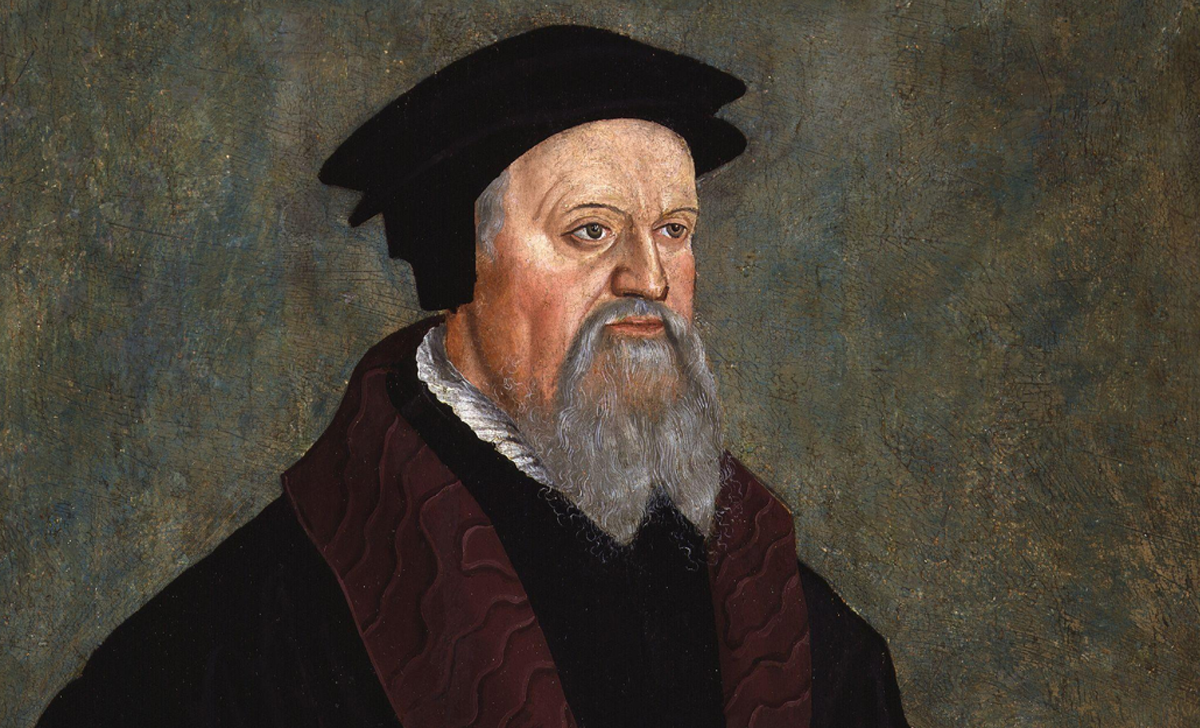
R. C. Sproul looked across the platform during a conference where he and several others were speaking, and asked Alistair Begg, “How would you explain what being “reformed” means?” Alistair’s answer to that question (which I will revisit in a moment) was very succinct and reminded me of the life of one of the lesser-known Protestant Reformers, the Italian Peter Martyr Vermigli (1499–1562). Vermigli was born and raised in Florence, one of the foremost cities of the Renaissance. His mother, Maria, taught him Latin as a child, so Vermigli was able to understand all that was said in the church service: the Bible readings, the songs, the sermons. From early childhood, Vermigli was irresistibly drawn to the Bible. His mother died when he was just twelve years old. Before she died, Vermigli told her that he wanted to grow up to be a priest so that he could teach others the Word of God. He later reflected, “From an early age when I was still living in Italy, I decided to pursue this one thing above the other human arts and studies – that I should learn and teach primarily the divine scriptures.”
Vermigli entered the priesthood and continued to study the Bible. He learned Greek and Hebrew to be able to read the Scriptures in the original languages. Vermigli was also passionate about reforming the church from its moral abuses. When he was placed in charge of some monasteries, he led the way in reforming their corrupt practices and gained a reputation as a “reformer.” Yet, Vermigli was still very much a Roman Catholic. His interest in reforming the church was largely confined to the church’s practices - not its doctrine. That would soon change. He was put in charge of a monastery in Naples where he made friends with the Spanish Reformer, Juan de Valdés (1490 – 1541). Valdés introduced Vermigli to the writings of Reformers such as Martin Luther, John Calvin, and Martin Bucer, among others. The more Vermigli studied the Bible, the more the ideas of these Reformers made sense to him. It was here in Naples that Vermigli became thoroughly convinced of the doctrine of Justification by Faith Alone and embraced the five “Solas” of the Protestant Reformation. From Naples, Vermigli was sent to the town of Lucca to reform the church of its corrupt practices. The more he preached and taught the Bible there, the more reformed the city became. Since he was teaching such biblical doctrines as Justification by Faith Alone, the papal authorities became alarmed. It was one thing to clean up the moral abuses of the clergy – that was fine; but to reform that church’s doctrine – that was going too far. Things came to a head, and Vermigli decided to leave his native Italy.
He spent some time with Heinrich Bullinger in Zurich, and then he was invited to help Martin Bucer in Strasbourg, where he also found a wife. Vermigli was a remarkably gifted Reformer, and his counsel was sought by Reformers all over Europe. When England’s King Henry VIII died in 1547, and his reform-minded son, Edward VI, came to the throne, Thomas Cranmer (Archbishop of Canterbury) invited Vermigli to come to England and help with the Reformation there. Vermigli accepted the invitation and became the Regius Professor of Divinity at Oxford University. His contributions to the English Reformation were great, and some of his influence can still be seen today.
When Edward VI died, his half-sister Mary Tudor (“Bloody Mary”) determined to bring England back into the Roman Catholic Church. She had Vermigli under arrest for half a year before he managed to flee back to Europe. He spent a few years back in Strasbourg and then went to Zurich to help Bullinger until his death in 1562.
Peter Martyr Vermigli’s contributions to the Reformation were so significant that John Calvin called him “The Miracle of Italy.” And Calvin’s successor in Geneva, Theodore Beza, called him a “Phoenix from the Ashes of Savonarola.” Yet, in all of his contributions to the Reformation in Europe and England, Vermigli was first and foremost a preacher and teacher of the Bible. Most of his writings were commentaries on the Bible. The tenor of his life and ministry was shaped by that central Sola – Sola Scriptura – the Scriptures stand alone as our rule of faith and practice.
Which brings me back to Alistair Begg’s answer to R. C. Sproul’s question, “How would you explain what being Reformed means?” This was Alistair’s answer: “Well, you start by reading your Bible. And then you become Biblical. Then, you’re Reformed.” That’s the way it was for Peter Martyr Vermigli. May it ever be that way for us.







